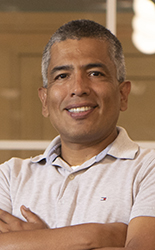➤ Krealo CEO Marco Roca expects the COVID-19 pandemic to accelerate the adoption of digital financial services in Latin America.
➤ The fintech-focused business unit isn't changing its 2020 investment plans for its operations in Peru, Colombia and Chile.
When Peru's largest bank, Credicorp Ltd., launched Krealo in 2018, its goal was to step up investments in financial technology firms that would "enhance the value proposition offered to current and potential customers of Credicorp and its subsidiaries." The firm now has five fintech firms under its management: Culqi, a payments facilitator; Tenpo, a digital wallet; Tyba, a digital broker; Wally, a digital point-of-sale service; and Lumingo, an online marketplace.
Krealo CEO Marco Roca recently spoke to S&P Global Market Intelligence about the "new normal" caused by the COVID-19 pandemic. While he predicts that a more digitally and financially conscious environment will emerge, he also recognized that fintech firms will have to overcome several challenges. These include educating clients, funding growth, and dealing with limited connectivity and access to technology. The company is still aiming to garner 350,000 new clients across its platforms by the end of the year.
Below is a translated transcript of that conversation which has been edited for length and clarity.
Krealo CEO Marco Roca Source: Krealo |
How has the coronavirus pandemic impacted Krealo's plans for 2020?
This pandemic could accelerate the digitization of the world. After this crisis... we will all be more digital, supportive and aware of our own finances. Fintechs have their grain of sand to contribute. We must bring financial services to customers' mobile phones, which is the best way to make payments and transfer money without leaving your home.
For SMEs, we have to empower and digitize access to working capital and the distribution chain. SMEs need access to credit at their point of sale, and from there they can also manage distribution and promotions with their suppliers.
In the corporate sector this month we have seen an acceleration in plans toward e-commerce... We have had many requests from companies interested in strengthening their digital sales channels. There is a very important role for fintech companies to play, and we at Krealo will double down on our efforts to cover these spaces.
Will Krealo adjust the amount it will invest this year?
No... [Investments] have been formalized and accelerated. The impact on our costs is minor, because as all our companies are in their growth phase, their income represents a small amount. But there will be some impact to growth for some months, growth will be distracted or delayed because there are other priorities in people's lives. We are reviewing our campaigns and efforts with our allies to see how we will recover lost time.
How much will you invest this year?
We have not made this year's number public, but by the end of this year we are expecting to have distributed a total of US$60 million in investments to the five companies. A good part of that has already been invested in the development of the apps, but we have a large budget with which to make additional efforts to refine our product offering and to keep scaling.
Which companies could see greater demand?
Out of our portfolio, Tenpo is the one that stands to gain the most, or the one that helps more people in this context, through P2P or purchasing with its prepaid card. International purchases could suffer — in the case of Chile, the peso has depreciated considerably — but domestic consumption could be favored by this migration to the online world. Payments for services and top-ups via mobile phones will be highly favored, too.
In Tyba's case, which is our digital investment broker in Colombia, we experienced a week of great uncertainty, where there was an increase in withdrawals of funds. But... we have almost recovered to our precrisis level. People are going to be much more sensitive with their savings, and Tyba gives them a... mechanism to save.
In Peru, we have bets in two directions: Lumingo, a digital marketplace, and Culqi, an e-commerce payments platform. Between the two of them we are seeing an increase in demand, as companies look to boost their online presence. We have been building online stores at a record pace in the last four weeks.
I think physical payments — Culqi has a mPOS (mobile point of sale) and Wally, which is a cash register solution for retailers — will be the worst hit by this, because they depend on movement on the streets... The recovery curve will be slower.
Are you looking to invest in any new startups?
This year we are focused on finding the right growth models for each of the five existing products. If we do something, it will be related to these projects. Tyba and Tenpo, for instance, are two sides of the same coin. Tenpo helps you with your day to day money, while Tyba helps you with your money for tomorrow. Uniting these two products into one makes sense ... That's the type of investment we will be prioritizing.
What are the main challenges to increasing adoption of fintech products in Latin America?
The first obstacle is education. Technological companies are working hard to teach clients how to use their products, even the basics. With Tenpo, for example, we're having to show people how they can use the app to subscribe to Netflix. At Tyba, we're doing educational webinars to teach investment and finance for the average person.
Secondly, you have tax evasion, of which there is a significant amount among our region's SMEs ... But we have to teach them that if they incorporate technology, they will sell more.
Third, it's hard to achieve a balance between the cost of customer acquisition and the marginal contribution of each client, so the cost of growth is expensive. Fourth, limited access to technology and connectivity in the population is an important factor.




